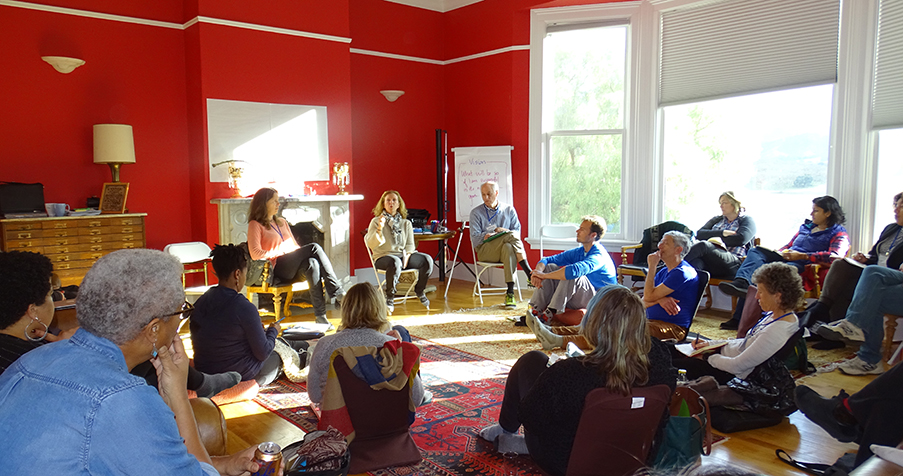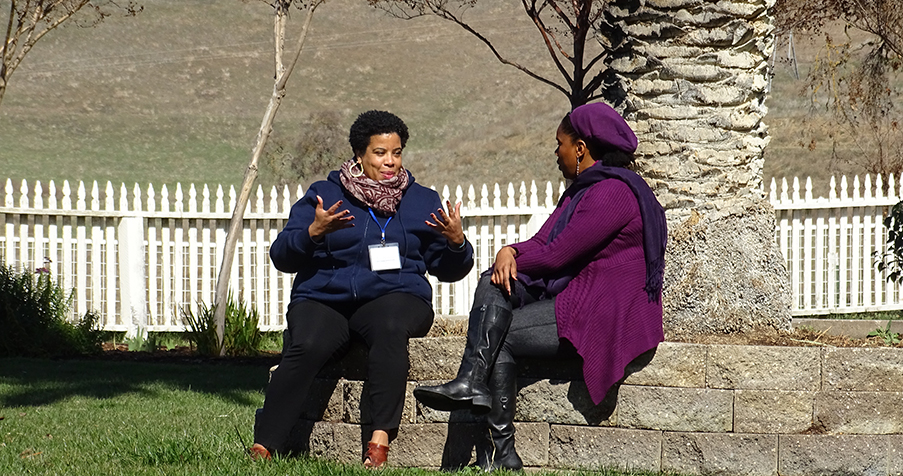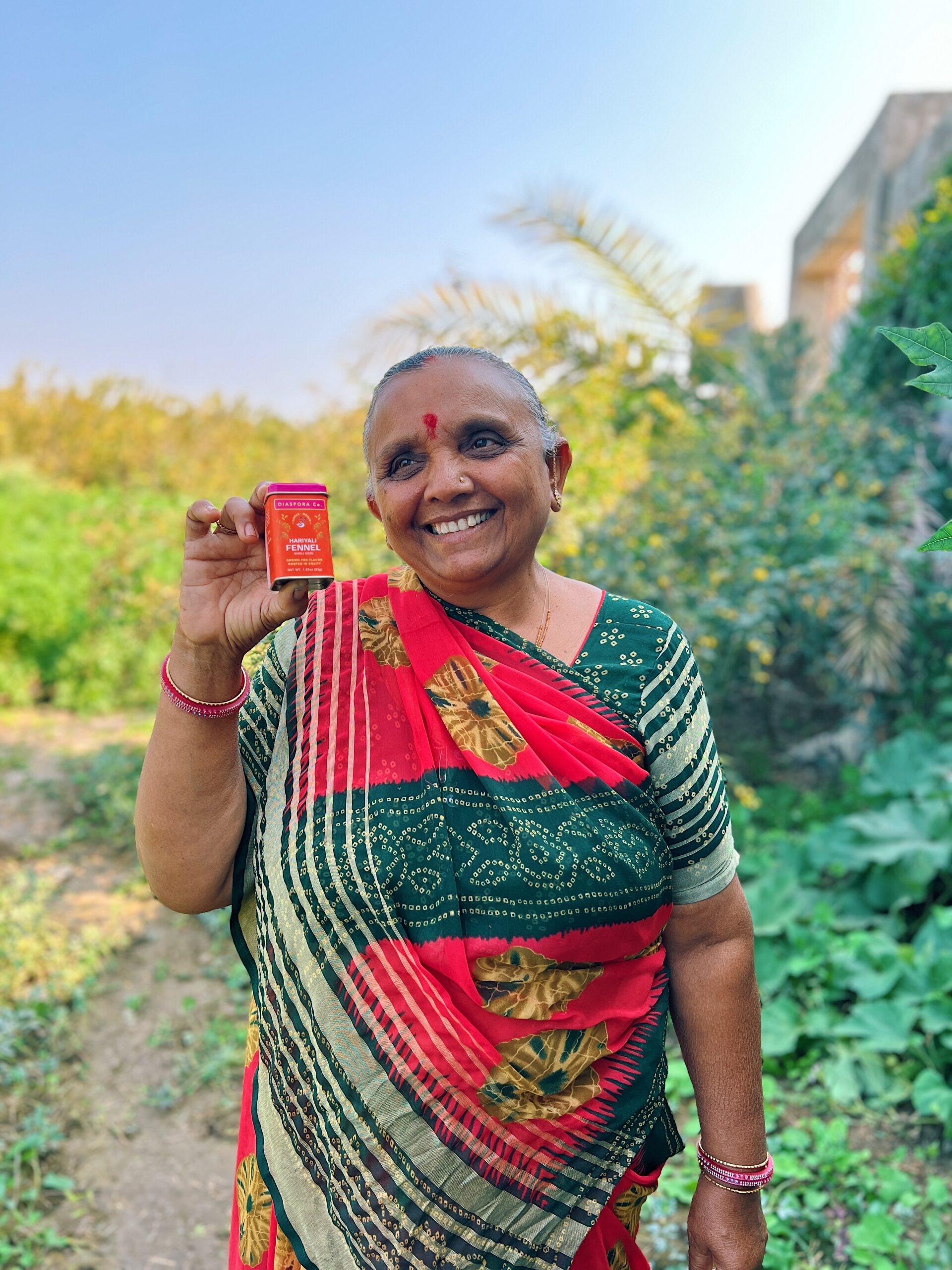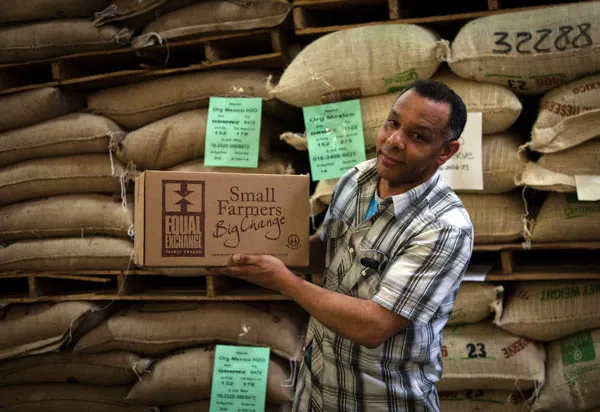Enrique: What is the Integrated Capital Institute, and who is it for?
Akaya: It’s for financial activists who want to leverage capital as a tool for positive social and ecological change. Over the nine-month program, the fellows learn alongside a group of experts in the field who are leveraging different kinds of capital through an integrated and strategic approach.
Marian: We’re weaving three strands together. One is the self-awareness and leadership piece in the realm of power and money. Another is understanding the current financial system and where and how we might strategically intervene. Lastly, it’s the more technical aspects—how does one structure the financing? All of these are important ingredients to supporting the empowerment of financial activists.
Enrique: I understand a financial activist to be a person who uses the power inherent in managing and applying money to bring about social change. Is that correct?
Joel: I would clarify what we mean by social change. Social change can be both good and bad.
Akaya: True. I’d say there have always been people very active in how they use their wealth to move a specific agenda, but they haven’t necessarily been working toward the common good. What’s new is that those of us who have been relegated to the margins of financial power are realizing that we can use the tools of finance to bring positive change. We’re now seeing more financial activism working toward community building and circulating wealth as opposed to consolidating it.

Enrique: For lasting, positive social change to happen, you need systems change, which requires more than finance. Do financial activists need to be broader activists as well?
Akaya: There are those who will be very fine financial activists, and there will be those who will do other things. And we need it all. If I had to take everything into consideration in order to move, I couldn’t move. What’s important here is that we build the interconnections among people so that those of us who are working on economic justice are connected to folks who are doing work in other areas.
Marian: Yes, that’s an important part of this emerging role of financial activism; intentional interconnection. Coming into the Integrated Capital Institute with many years of experience in working with people who have wealth, I am relishing the opportunity to support people with common goals but different histories, capacities, and expertise.
Joel: The most important essence of all of this for me is that people have been disconnected from the source of their wealth. The systems that have created wealth are inherently linked to the systems that have also created social and environmental problems. This is part of why the Integrated Capital Institute was created. We need to find ways to direct money to the common good, not for the expansion of individual wealth.
Akaya: One of the things I’ve learned in this program is how money isn’t very real. It’s a set of agreements around what gets valued. So there are opportunities to intervene. We can begin to re-value based on the change we want to see.
Joel: Part of that is empowering a more diverse pool of people. The financial system that we have is an outgrowth of colonialism that was designed to be highly extractive and to concentrate wealth in fewer and fewer people’s hands. The changes we seek are going to disrupt this system and turn it on its head. Social change activists have tended to look at wealth as a big evil. However, with financial activism, we’re starting to look at money differently. You can build businesses that treat people fairly, take responsibility for their externalities, and care about their communities. There are so many ways that the use of money can be reformed and directed for the better. That’s what we’re doing with the Institute – supporting people to be empowered to use the tools of finance to direct wealth in different ways.
Marian: I would add that we’re also working to give people agency. We’re trying to foster agency through education and demystification. I’m one of the people here who’s not a financial professional, but because I’ve been working in the field for a dozen years, I’ve come to realize through education that it’s not that complicated. Proximity and education enable the demystification of finance.
Akaya: So many people who call themselves social change activists are often terrified of thinking about money. The financial system is opaque and, therefore, complicated by design. We’re saying no, it’s actually not that hard. Our intention is to make these ideas readily available to anyone who has the interest and passion for it.

Enrique: This cohort is a mix of financial professionals, movement builders and people in the philanthropic field who can direct capital in significant ways. Do they fully realize the power that they have in these roles?
Joel: We’re trying to help people see their alternatives. These professionals are making choices with financial products all the time. It’s about bringing consciousness and an intention that says “I am only going to invest in things that are moving towards better rather than doing further damage and extraction.”
Marian: And there’s another conceptual cultural intervention that we’re making as well. There’s the default setting of wealth managers regarding fiduciary duty. The widely accepted definition of fiduciary translates to earning money on money. But when you dig down into that fiduciary responsibility, it also requires other duties including a duty of care and duty of obedience. We’re trying to intervene in the notion that duty is only about making more money. Duty should also look at deeper responsibilities around who and what are being impacted. To what are we being obedient? We want to empower people to choose what their fiduciary responsibility is.
Akaya: To do that we’re really interested in empowering people to be brave, courageous people who will break out of the frame and create some new frames. It’s been interesting to watch this cohort go from not knowing one another and feeling a little guarded. What does this mean? What are we doing here? Slowly we’re moving toward an “aha” moment and recognizing that we need each other. We’re listening to one another; we’re sharing our wisdom and sharing our resources.
Enrique: Any final thoughts?
Joel: Urgency is upon us more than we want to realize. We all need to focus ourselves on whatever resources we can influence and whatever people with resources we can influence. There is plenty of money to solve the world’s most pressing problems, but our mindset and systemic barriers are holding us back. We can demand better and we have to do so.
Marian: I would add that we’re wanting to stimulate creativity with money. You don’t always think of those two things together, but it’s a relationship that can actually be quite powerful.
Akaya: And let’s have a good time while we’re doing it! Social change can be joyous and full of laughter and learning. Let’s approach this in a different way so that finance is not something dreary and dull. It should be available to all of us and the truth is it needs to be—we need each other.
RSF’s Integrated Capital Institute faculty—Akaya Windwood, Joel Solomon, and Marian Moore—reflect on what it means to be a financial activist and the opportunity the fellows have to drive positive social and environmental change.
Interviewed by Enrique Perez, marketing manager.


